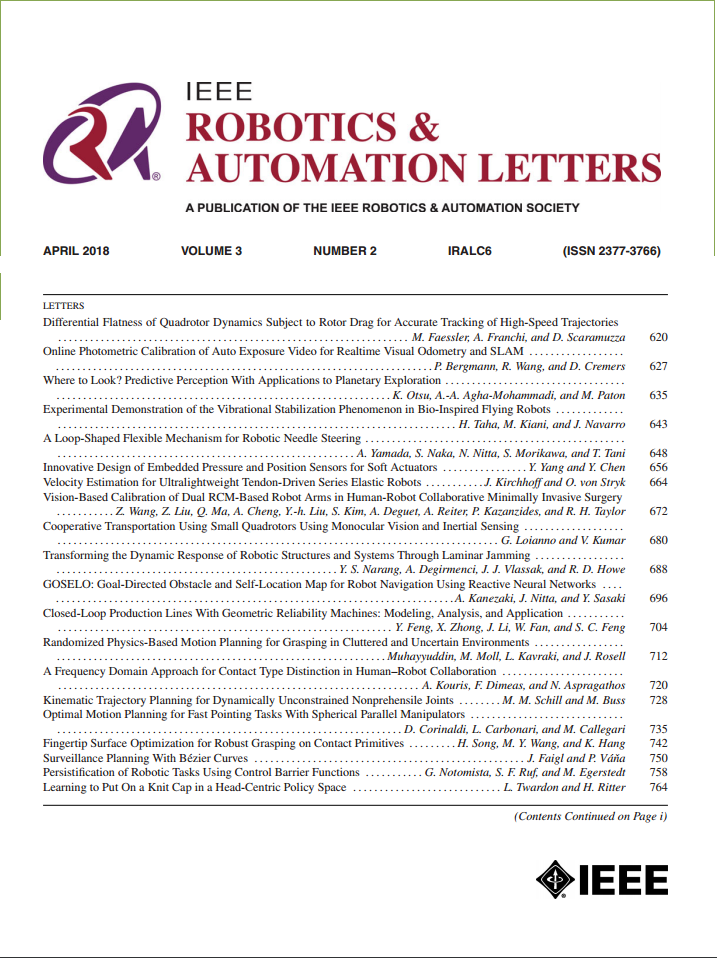基于博弈论的脑控地空协同自治系统自适应模型预测控制框架
IF 4.6
2区 计算机科学
Q2 ROBOTICS
引用次数: 0
摘要
脑机接口(BMIs)可以使人类绕过周围神经系统,直接通过中枢神经系统控制设备。通过这种方式,操作员的双手被解放出来,允许他们与其他设备进行交互,从而实现多任务操作。为了提高地空协同系统的性能,本文提出了一种脑控地空协同系统的自适应模型预测控制框架,该框架由具有概率输出模型的BMI、基于模糊逻辑的接口模型和基于博弈论的自适应模型-预测-控制共享控制器组成。建立了人在环实验平台,通过轨迹跟踪和避障场景验证了该方法。实验结果表明,该方法在提高性能和减少操作员工作量方面是有效的。这项工作可以为地空协作的研究和发展做出贡献,并为人机集成的研究提供新的见解。本文章由计算机程序翻译,如有差异,请以英文原文为准。
Adaptive Model Prediction Control Framework With Game Theory for Brain-Controlled Air-Ground Collaborative Autonomous System
Brain-machine interfaces (BMIs) can enable humans to bypass the peripheral nervous system and directly control devices through the central nervous system. In this way, operators' hands are freed up, allowing them to interact with other devices, thus enabling multitasking operations. In this letter, to improve the performance of air-ground collaborative systems, we propose an adaptive model prediction control framework of brain-controlled air-ground collaboration systems, which consists of a BMI with a probabilistic output model, an interface model based on fuzzy logic, and an adaptive model-predictive-control shared controller based on game theory. We establish a human-in-the-loop experimental platform to validate the proposed method by trajectory tracking and obstacle avoidance scenarios. The experimental results show the effectiveness of the proposed method in improving performance and decreasing operators' workload. This work can contribute to the research and development of air-ground collaboration and provide new insights into the study of human-machine integration.
求助全文
通过发布文献求助,成功后即可免费获取论文全文。
去求助
来源期刊

IEEE Robotics and Automation Letters
Computer Science-Computer Science Applications
CiteScore
9.60
自引率
15.40%
发文量
1428
期刊介绍:
The scope of this journal is to publish peer-reviewed articles that provide a timely and concise account of innovative research ideas and application results, reporting significant theoretical findings and application case studies in areas of robotics and automation.
 求助内容:
求助内容: 应助结果提醒方式:
应助结果提醒方式:


